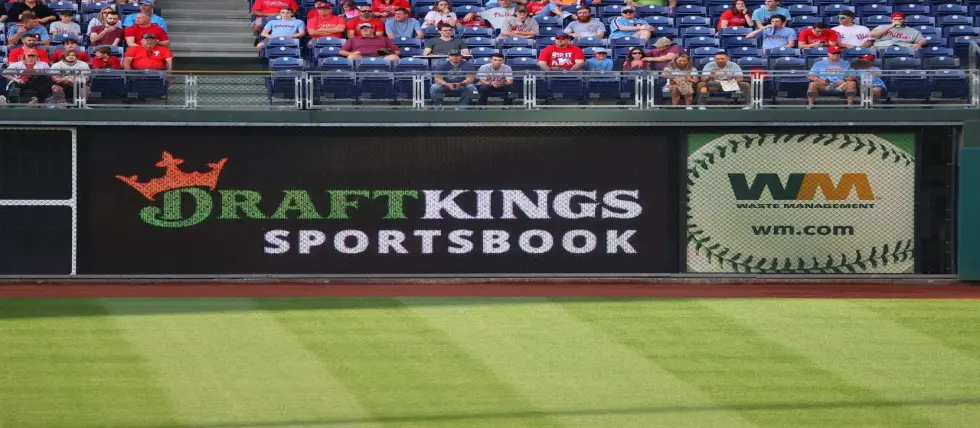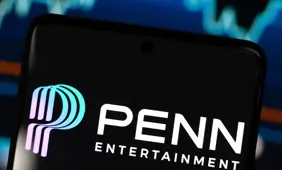DraftKings Drops Winning Surcharge Tax after FanDuel Says No
In a decisive move during Tuesday's earnings call, Flutter Entertainment subsidiary FanDuel distanced itself from the controversial practice of imposing a surcharge on betting winnings, a strategy previously considered by its competitor, DraftKings.

This announcement came as a significant industry development, given the recent debates surrounding the imposition of additional charges on winnings. DraftKings had initially planned to introduce a surcharge, which was speculated to be a means to increase revenue and possibly offset the higher costs of operations and taxes in certain competitive markets.
Related: DraftKings Considers Surcharge as States Raise Sports Betting TaxesHowever, the proposal for a surcharge was met with substantial opposition from both bettors and other betting operators. The backlash was rooted in concerns that such a surcharge would diminish the attractiveness of DraftKings' offerings and could potentially set a precedent for additional fees in the industry.
One survey, conducted by Jefferies Equity Research, showed that 60% of respondents – all investors focused on the gaming industry – disapproved of DraftKings' decision. In response to the widespread disapproval, including the firm stance by Rush Street Interactive and FanDuel, DraftKings retracted its plan, signaling a sensitivity to the market's reaction and a willingness to adapt to customer and peer feedback.
Flutter Performing Well Without Crippling Surcharges
Flutter's assertion that an additional surcharge was unnecessary underscored the company's confidence in its current financial performance and strategic direction. The firm highlighted the robust health of its various business segments, suggesting that the existing operational model was both sustainable and profitable without resorting to extra charges on customer winnings. This stance not only aligns with customer preferences but also reinforces Flutter's commitment to maintaining a competitive edge through customer-friendly practices.
More Business News
 Business
Business
Fitch Analysts Paint Potentially Dire Picture of US Casino Operators' Future in Macau
Apr 25, 2025CEO Peter Jackson emphasized the strides Flutter has made in enhancing its sports betting products, particularly in basketball and baseball, through improvements in the NBA, WNBA and MLB offerings. These advancements have presumably contributed to the company's strong performance and negated the need for additional revenue streams through surcharges.
Furthermore, Jackson celebrated the successful introduction of Italy's first same-game-parlay bet. This has reportedly captured a record market share in the country, indicating Flutter's ability to drive growth through product development rather than additional fees.
Forcing a Dynamic Shift
The decision by FanDuel to not implement a surcharge on betting winnings, followed by DraftKings' subsequent reversal of their surcharge plan, has significant implications for the betting industry. Firstly, it sets a precedent for customer-centric policies, emphasizing the importance of user experience and satisfaction in retaining a competitive edge. Betting companies that may have been considering similar surcharges might now be dissuaded, fearing customer backlash and potential loss of market share.
Secondly, the move by FanDuel and the reaction from DraftKings could lead to a shift in how betting companies strategize to balance taxation costs with profitability. Rather than passing costs onto customers, they may seek alternative methods, such as optimizing operational efficiencies or innovating in product offerings to attract and retain users.
Moreover, this development could encourage transparency in the industry, as companies may need to clearly communicate their pricing structures and any changes to maintain trust with their user base. This could result in a more informed and discerning customer base, which would have to be navigated carefully by all operators in the sector.
Additionally, the stance taken by FanDuel and the response from DraftKings highlight the power of collective resistance from both operators and bettors. This could empower other stakeholders in the industry to voice their concerns and influence decisions that affect the wider betting community.
RELATED TOPICS: Business
Most Read
Must Read
 Interviews
Interviews
Sweepstakes Casinos: Thriving in an Ever-Changing Industry – Interview with Attorney Stephen C. Piepgrass
Feb 17, 2025 Interviews
Interviews






Review this New Post
Leave a Comment
User Comments
Comments for DraftKings Drops Winning Surcharge Tax after FanDuel Says No